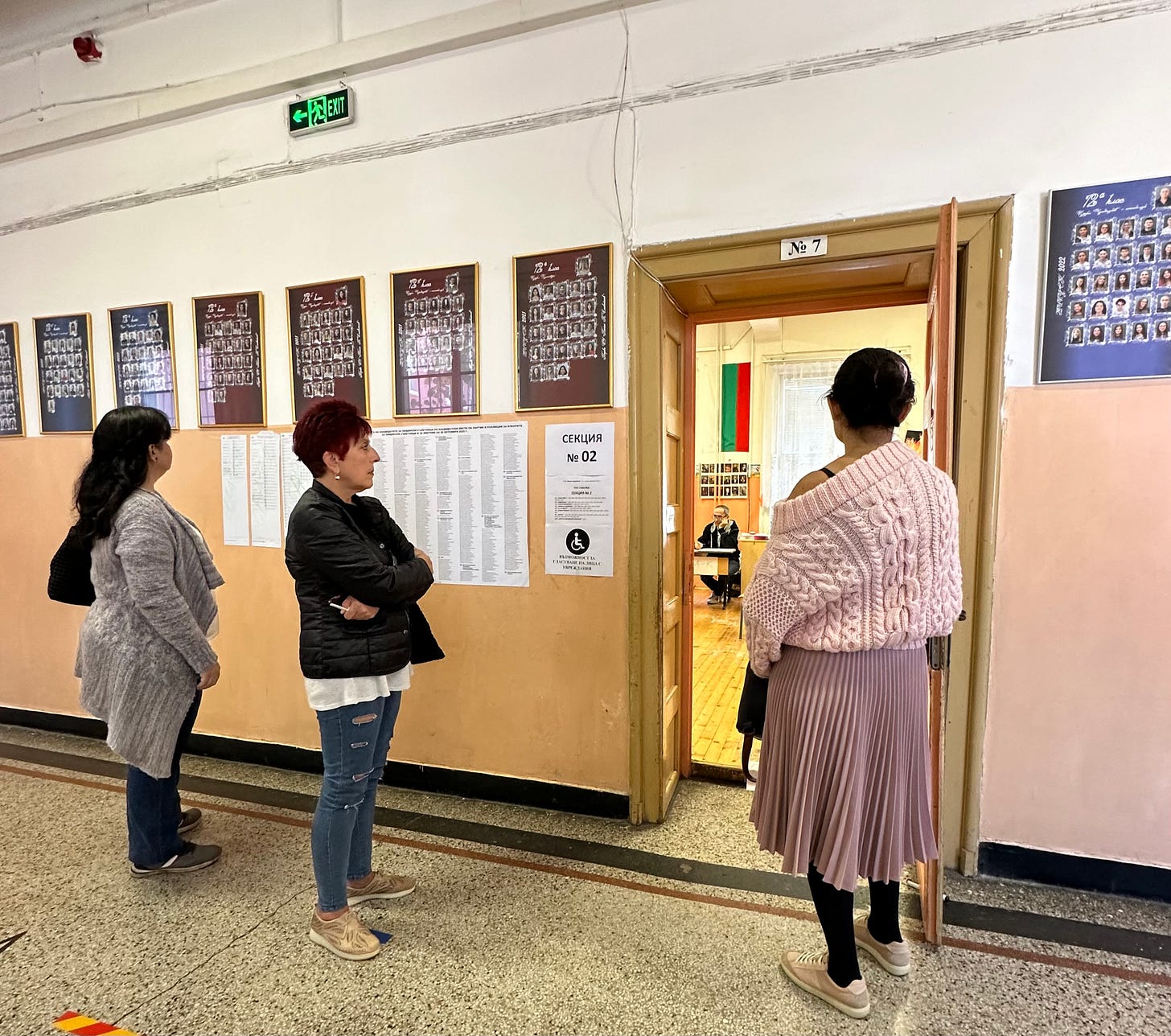Being at home as a European in a young democracy
Thoughts after taking part in my first ever election in Bulgaria 🇧🇬🇪🇺
Happy Sunday!
Today was a remarkable day for me: for the first time ever I voted in an election in a country other than the Netherlands. And for the first time ever, I voted in Bulgaria, in the municipal elections that take place every four years, where the mayors and city councils are elected. And in Sofia, where I get to vote, also the district mayors are elected today.
As EU citizens we’re entitled to participate actively (as voters) and passively (as electees) in local elections and European Parliament elections in any EU country where we are registered as residents. Yet, in the twelve years that I’ve been living in Bulgaria, I never felt the need to exercise that right. I’ve always diligently voted in the Netherlands parliamentary elections by mail-in absentee ballot, but never felt that I needed to take the effort to register as a voter in Bulgaria.

This time it’s different, for several reasons. First, I happen to personally know many mayoral and city council candidates, so there’s a personal angle for me to many of them, all across the sympathy spectrum. Secondly, and much more importantly, I care more.
I care as a regular citizen, who has opinions about street cleaning, public spaces, parking policy, safety, etc. But I also care as a European. It’s a core idea of the EU that we’re not guests in other EU countries, but are at home, especially when we live there. I’ve always believed that the key to any societal development is more diversity. First and foremost of the gender and race kind, but also international diversity is important. It’s a simple truth that the most developed societies and economies are those that have become places where people from other countries want to, and can, move to. The obvious examples are historically multicultural countries like the US, Canada, Australia, and UK, as well as the Netherlands. But some countries, which have only recently become very developed, never had multiculturalism. Look at Norway, Ireland, or the UAE. However, as they started to accelerate their growth, they have all become open to newcomers from all across Europe and the world.
In Bulgaria, for very understandable historical reasons, I still lack this vision, and I think that by voting I can make a statement on this. This country doesn’t just belong to people whose heritage is Bulgarian; it’s a European nation that can, and hopefully will, become home to any Europeans that wish to reside here.
When I look at the election discourse in Bulgaria, I definitely think we need more of that international perspective. For someone who’s used to a very participatory and fractured political environment like in the Netherlands, where the 150-seat lower house of parliament has a whopping 20 party groups represented, the idea of 4 or 5 parties who are all either very for or very against something on a very limited and politicized list of topics, seems too constrained. Modern democracy is by definition much more about dialogue and finding consensus than it is about implementing your agenda at the expense of someone else’s.
And in the end, democracy is about representation. I’m glad to know that, whatever the outcome of tonight’s vote count, my opinion is taken into account.
Unlike many of my progressive friends in Sofia, I personally care less about whether the old and presumably more corrupt party gets another 4 years to run this city, than I do about increasing participation across the political spectrum, more dialogue, and yes, more Europe, in the way that this city is managed and grown. A city that is a European capital, and the 14th largest city in the EU, that also happens to be my home.

